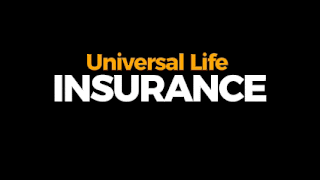Universal life insurance (UL) is a type of permanent life insurance that combines a death benefit with a cash value component, offering policyholders flexibility in premium payments and death benefits. This article will explore the essential features, benefits, drawbacks, and considerations of universal life insurance.
What is Universal Life Insurance?
Universal life insurance is designed to provide lifelong coverage while allowing policyholders to adjust their premium payments and death benefits within certain limits. The policy includes a savings element, where a portion of the premiums goes into a cash value account that earns interest over time.
Key Features of Universal Life Insurance
Flexible Premiums:
- Unlike whole life insurance, universal life insurance allows policyholders to vary their premium payments. They can pay more than the minimum required or skip payments if there’s sufficient cash value to cover the costs.
Adjustable Death Benefit:
- Policyholders can typically choose between a level death benefit or an increasing death benefit, allowing them to tailor their coverage based on changing needs.
Cash Value Growth:
- The cash value component grows based on a credited interest rate, which is usually tied to a financial index. This means the cash value can fluctuate, providing potential for growth.
Policy Loans:
- Policyholders can borrow against the cash value, providing access to funds in emergencies or for other needs. However, unpaid loans will reduce the death benefit.
Transparency:
- Universal life policies often provide detailed statements that outline the premiums paid, cash value growth, and any fees or charges.
Benefits of Universal Life Insurance
Flexibility:
- The ability to adjust premiums and death benefits allows for adaptability as financial needs change over time.
Cash Value Accumulation:
- The cash value can grow over time, providing a potential source of funds for emergencies or other financial needs.
Lifelong Coverage:
- Universal life insurance offers protection for the policyholder's entire life, ensuring that beneficiaries will receive a death benefit regardless of when the insured passes away.
Potential for Higher Returns:
- Depending on the interest rate credited to the cash value, there’s potential for growth that can exceed that of traditional whole life policies.
Drawbacks of Universal Life Insurance
Complexity:
- The structure of universal life insurance can be complicated, making it essential for policyholders to understand the terms, interest rates, and potential fees.
Costs and Fees:
- Universal life insurance can include various costs and charges, which may reduce the cash value and overall benefits if not carefully managed.
Interest Rate Risk:
- The credited interest rate can fluctuate, potentially leading to lower cash value growth during periods of low interest rates.
Potential for Lapse:
- If premiums are not paid and the cash value is insufficient to cover costs, the policy may lapse, resulting in a loss of coverage.
Considerations When Choosing Universal Life Insurance
Evaluate Your Financial Goals:
- Consider how universal life insurance fits into your broader financial strategy, including retirement planning and estate considerations.
Understand Premium Flexibility:
- Assess your comfort level with the flexibility of premiums and ensure you understand how changing payments can impact your policy.
Review Interest Rates:
- Stay informed about the interest rates that will affect your cash value growth and how they are determined by the insurer.
Consult a Professional:
- Work with a financial advisor or insurance agent to navigate the complexities of universal life insurance and determine if it’s the right fit for your needs.
Compare Policies:
- Explore different insurers and policy options to find a universal life insurance plan that aligns with your financial goals and offers competitive rates.
Conclusion
Universal life insurance is a versatile financial product that combines lifelong protection with flexibility in premium payments and death benefits. While it offers unique advantages, such as cash value growth and adaptability, its complexity and potential costs require careful consideration. By understanding the features, benefits, and drawbacks of universal life insurance, you can make an informed decision that supports your long-term financial strategy and provides peace of mind for you and your loved ones.

0 comments:
Post a Comment